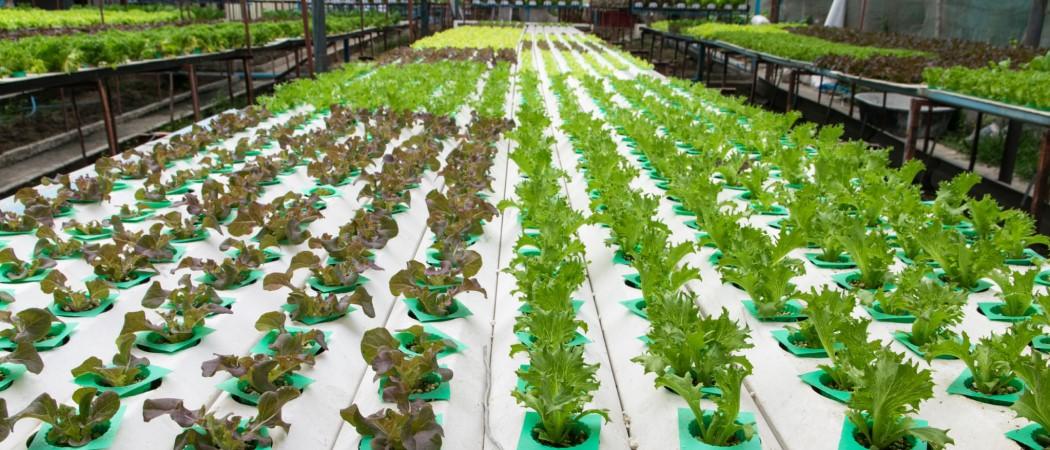Agriculture ministers agree on plans for green food production but want scientific impact assessments before policy becomes law, and are calling on the European Commission to publish its study on precision breeding

The EU should make use of innovative breeding technologies to boost sustainability of food production, agriculture ministers agreed on Monday, as they gave their stamp of approval to the European Commission’s ‘Farm to Fork’ plan to reduce the use of fertilisers by 30 per cent and turn 25 per cent of agricultural land over to organic farming.
The ministers called for the use of “new innovative ingredients and techniques” to boost sustainable food production, as long as they are shown to be safe for humans, animals and the environment.
This was with reference to precision breeding using gene editing, which enables genetically modified organisms to be generated without introducing genes from other species. As things stand, the technology cannot be used in the EU, following a 2018 ruling by the European Court of Justice, which founds genome editing is subject to the 2001 EU directive banning genetically modified organisms.
Researchers in 120 institutes across Europe have asked the commission to reverse the court ruling, arguing precision breeding and genome editing are a speeded-up equivalent of traditional breeding techniques and could increase the genetic diversity of crop plants, reduce use of pesticides, and further the development of healthy food.
Agriculture ministers want the commission to complete its study of the status of novel genomic techniques under EU legislation by April 2021.
The commission’s view is that precision farming technologies should underpin the transition to eco-friendly food production. Frans Timmermans, the commission’s executive vice-president for the European Green Deal said the EU aims to give farmers the tools to adopt precision agriculture and to leverage scientific discoveries to optimise seeds.
“That's how we limit our dependency on pesticides,” Timmermans told delegates at the EU Green Week conference last week. “Going to ecological farming doesn't mean we all have to munch on grass and live in caves, we need to use the latest technology to get us there,” he said.
The EU’s plan for ecological food production has been criticised by US Secretary for agriculture Sonny Perdue, who said Europe is reluctant to use new technologies in agriculture. “The US is worried that the farm to fork and biodiversity strategies will be extremely trade-prohibitive and jeopardise agricultural output,” Perdue said in a web conference with EU agriculture commissioner Janusz Wojciechowski.
EU research funding
In pursuit of farm to fork objectives, the EU will allocate €8.9 billion under the upcoming ninth framework programme, Horizon Europe, for projects on food, bioeconomy, natural resources, agriculture, fisheries, aquaculture and the environment.
Some of the Horizon Europe funding will be funnelled through a partnership for safe and sustainable food systems, which will help member states to work together on an EU-wide governance mechanism for research and innovation in sustainable agriculture.
Horizon Europe will also have a research mission focused on improving soil health, and a dedicated partnership on research, aiming to reduce use of pesticides and antimicrobial drugs in agriculture by 2030.
Non-binding agreement
While the farm to fork plan is not part of any binding legislation yet, member states want the commission to do “scientifically-sound ex-ante impact assessments” before translating the ambitions into legislation. For the moment, member states are in favour of a “prudent and responsible” use of pesticides, antimicrobials and fertilisers to be the basis of EU legislative proposals under the farm to fork strategy.
Agriculture ministers said the objectives and targets of the farm to fork strategy should be included in Common Agricultural Policy (CAP) national strategic plans through country-specific recommendations. However, the commission has confirmed that the recommendations are not legally binding.
At least in theory, the transition to the new food production paradigm will be underpinned by a reform of CAP, which MEPs are voting on today.
Greens MEPs say amendments proposed by conservatives, socialists and liberals, which allow the commission to disburse 60 per cent of CAP direct payments to farmers without stronger sustainability targets, will “water down” the commission’s ambitions.
“Without binding targets for more climate protection, less pesticides in the fields and less antibiotics in livestock farming, the CAP will stand as the very antithesis to the purpose of the Green Deal,” said Greens MEP Bas Eickhout. “The commission should revisit the CAP proposals to ensure that it includes both the biodiversity and farm to fork strategies so that it fits within the promise of the Green Deal,” he said.
On the other side, conservative MEPs said on Monday that the EU cannot increase sustainability “by forbidding stuff”, such as pesticides and fertilisers.





 A unique international forum for public research organisations and companies to connect their external engagement with strategic interests around their R&D system.
A unique international forum for public research organisations and companies to connect their external engagement with strategic interests around their R&D system.